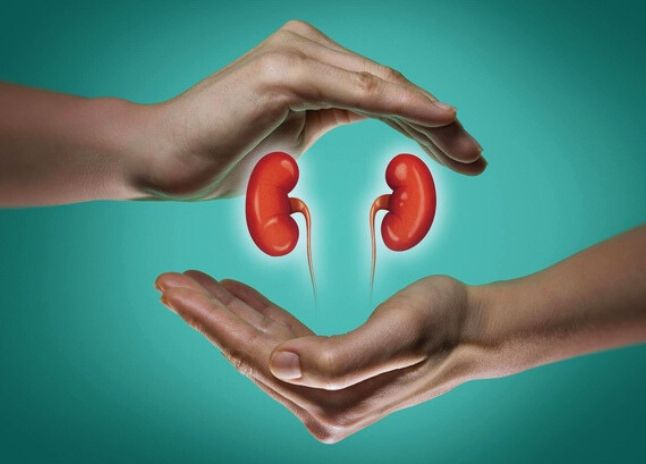Execution tension is a sort of “state uneasiness”, that is, a blend of physical, mental and social responses that, by and large, happen at a specific second when one hopes to accomplish an objective or result that is viewed as troublesome or inaccessible. Individuals who experience the ill effects of execution tension might be stressed over not having the option to finish a job or movement and may feel that inability to succeed will prompt humiliation and disgrace of the judgment of others, no matter what the specific situation, be it the individual life, work or a heartfelt or sexual relationship. It is a peculiarity that the two singles and couples can understand, and it is vital to know how to remember it to manage it.
Performance Anxiety, How To Recognize It
Individuals can stay away from explicit, restless circumstances by restricting themselves to just specific encounters. They feel helpless and uncertain, which is the reason they decide to try not to be in circumstances in which they encounter extraordinary close-to-home trouble inspired by a paranoid fear of not making it. This can be punished from a profound and social perspective.
To try not to feel as such, the people who experience the ill effects of execution nervousness might attempt to keep away from ways seen as mind-boggling, for instance, everyday life vocations that require talking openly, just to lament later having permitted their nature of presence to be affected by their apprehension.
Individuals with milder instances of execution tension are capable of not impacting their life and professional choices but instead still removing moves toward staying from circumstances like work introductions or social and gathering get-togethers. They attempt to conceal their nervousness, giving defenses to redirect consideration from the genuine reason while proceeding to feel uncertain.
What Is Anticipatory Anxiety?
Over time, they may find themselves frequently worrying about situations that only rarely require exposure to the source of their insecurity. The fear of having to face a particular problem in the future can lead to anticipatory anxiety. Anticipatory anxiety is a type of anxiety characterized by a cognitive rather than physiological expression (unlike performance anxiety in the strict sense). It involves feelings of apprehension and worry when faced with a task or situation, for example, in the sphere of work, personal or sexual. An emotional discomfort that is thought about by the person even many days before that specific feared experience can occur.
Male Sexual Performance Anxiety
It is impossible to be highly anxious and sexually aroused at the same time because of the interconnectedness of the mind and body. Men may appear confident in many aspects of life, be able to solve problems and handle difficult situations. Yet, they may feel sexually vulnerable and insecure, which can have a significant impact on their mental health and relationships.
Men with low self-confidence and significant emotional relationships are likely to accept negative beliefs without any evidence that previous failure results in future sexual performance problems. A person who doubts his ability to engage in a satisfying sexual relationship may mistakenly believe that his lack of sexual interest in an attractive person who might appeal to other people indicates a problem within him, not just a problem—a matter of personal taste.
Those who experience severe performance anxiety and anticipatory anxiety may become so overwhelmed that they inhibit their sexual desires. It’s impossible to feel passionate about an encounter, believing it won’t end well. Declining sexual desire and detachment from romantic relationships can lead some men, particularly those inexperienced or new to the dating scene, to ask themselves questions like, “Who am I attracted to?” …”Who would I like to make love with?”.
Men who suffer from this type of anxiety are more likely to experience the phenomenon of ” spectatoring “, being too focused on their performance and careful to measure their success, as if they were seeing themselves from the outside, detaching themselves from the sensations of their body and therefore worrying. Primarily of the partner’s enjoyment by involuntarily inhibiting one’s own.
This can lead to difficulty enjoying pleasure freely during sexual intercourse, as they are excessively concerned with maintaining an erection and lasting long enough before ejaculating, focusing solely on performance, erection and orgasm. Social norms can exacerbate sexual performance anxiety in men. The expectation that men must always be ready, excited, and able to perform sexually can create sexual performance anxiety. In these cases, the help of a sexologist and psychotherapist is fundamental.
What To Do In Case Of Sexual Performance anxiety?
Sexual performance anxiety and anticipatory anxiety are the main factors that contribute to the development of individual and couple problems related to sexuality. We all experience sexual performance anxiety, but it only becomes a problem when it prevents us from enjoying sexual intercourse that is satisfying to both partners.
Pathological anxiety can be a challenge for both individuals and couples, but with professional help from a clinical sexologist or psychotherapist, it can be managed and resolved. The number of meetings required will rely upon the following:
- how long the problem has been present;
- by the frequency with which it occurs ;
- by the impact on individual and couple life;
- by what has been done to try to resolve it;
- by the motivation of both partners in dealing with it.
All of these factors must be taken into consideration. In respect of each individual’s and couple’s differences, and all exceptions, 12 meetings with a sexologist and psychotherapist could often be sufficient.




